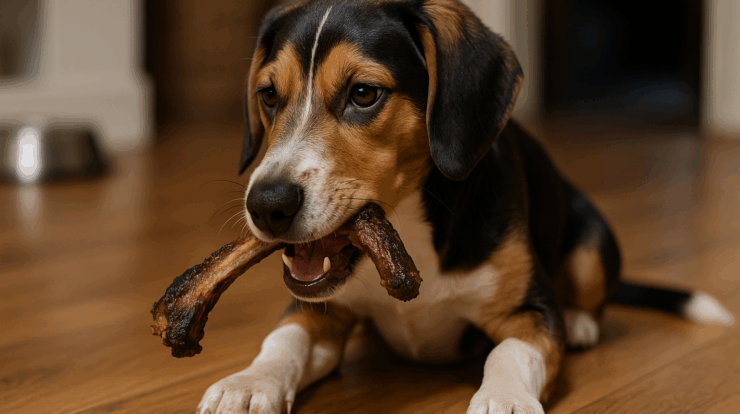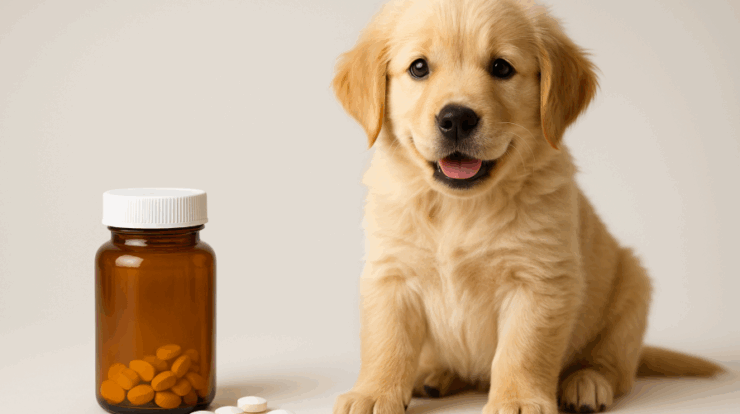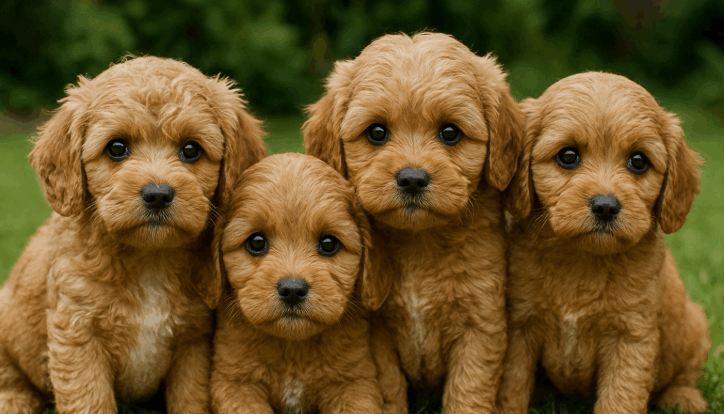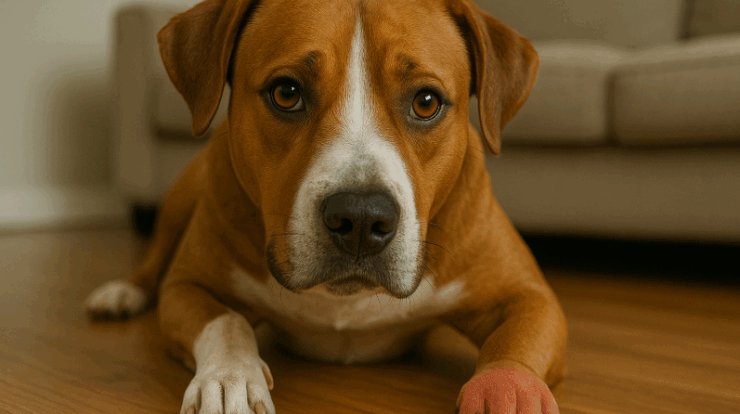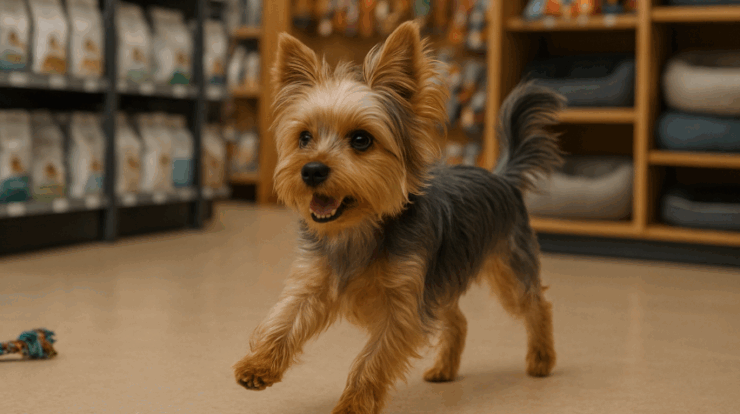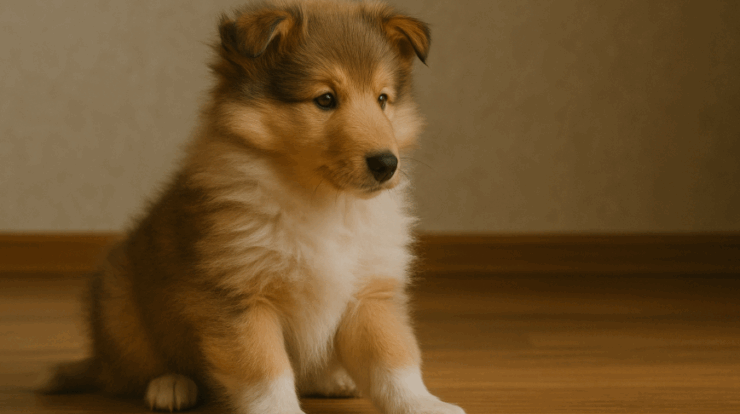German Shorthaired Pointer puppies for sale beckon with the promise of loyal companionship and playful antics. Delve into the world of this beloved breed as we explore key aspects to consider before welcoming one into your home.
From understanding their unique characteristics to navigating the process of finding reputable breeders, this guide aims to equip you with the knowledge needed to make an informed decision when choosing a German Shorthaired Pointer puppy.
Research on German Shorthaired Pointer Breed

German Shorthaired Pointers are a versatile and intelligent breed known for their athleticism, loyalty, and friendly nature. They are medium to large-sized dogs with a sleek, short coat that can be liver, black, or a combination of the two.
History and Origin
The German Shorthaired Pointer breed originated in Germany in the 19th century, where they were developed as a versatile hunting dog. They were bred by crossing various hunting breeds, including the Spanish Pointer, English Pointer, and various scent hounds, to create a dog that excelled in both pointing and retrieving game.
Temperament and Behavior Traits
German Shorthaired Pointers are known for their friendly and outgoing personalities. They are highly intelligent and eager to please, making them easy to train. They are also energetic and require plenty of exercise to keep them happy and healthy. Additionally, they are known to be good with children and other pets, making them a great family companion.
Finding Reputable Breeders

When looking for reputable breeders of German Shorthaired Pointer puppies, there are several key factors to consider to ensure you are getting a healthy and well-bred puppy.
Importance of Health Screenings and Genetic Testing
It is crucial to choose a breeder who conducts health screenings and genetic testing on their breeding dogs. This helps to identify and eliminate any hereditary health issues that could be passed down to the puppies. Make sure to ask the breeder for documentation of these tests to ensure the puppies are healthy and free from genetic disorders.
Tips to Distinguish Trustworthy Breeders
- Visit the breeder’s facility in person to see where the puppies are raised and meet the breeding dogs.
- Ask for references from previous puppy buyers to hear about their experiences with the breeder.
- A reputable breeder will be knowledgeable about the breed and will be happy to answer any questions you have.
- Be wary of breeders who have multiple litters available at the same time or who are unwilling to show you the living conditions of the dogs.
- Trust your instincts
- if something feels off or if the breeder is pressuring you to make a quick decision, it may be a red flag.
Understanding Puppy Care Needs
German Shorthaired Pointer puppies have specific care requirements that are essential for their health and well-being. It is important to be aware of these needs to ensure that your puppy grows up to be a happy and healthy adult dog.German Shorthaired Pointer puppies require regular grooming to keep their coat in good condition.
This breed has a short coat that is easy to maintain, but regular brushing is still necessary to remove loose hair and prevent matting. Additionally, their nails should be trimmed regularly, and their ears should be checked and cleaned to prevent infections.
Grooming Needs
German Shorthaired Pointer puppies have minimal grooming needs compared to some other breeds. However, regular brushing is still essential to keep their coat healthy and shiny. It is also important to trim their nails regularly to prevent them from becoming too long and causing discomfort.
Checking and cleaning their ears routinely can help prevent ear infections, which are common in dogs with floppy ears.
Exercise and Training Needs
German Shorthaired Pointer puppies are active and energetic dogs that require plenty of exercise. Daily walks, playtime, and interactive games are essential to keep them physically and mentally stimulated. This breed also thrives on training and mental stimulation, so incorporating obedience training and interactive toys into their routine is important.
Consistent training and positive reinforcement are key to raising a well-behaved German Shorthaired Pointer puppy.
Pricing and Budgeting
German Shorthaired Pointer puppies are typically priced between $500 to $1,500, depending on various factors such as the breeder’s reputation, bloodline, and the puppy’s pedigree. It is important to budget not only for the initial purchase price but also for the long-term care expenses that come with owning a dog.
Average Costs
When budgeting for a German Shorthaired Pointer puppy, it is essential to consider additional expenses beyond the initial purchase price. These may include:
- Veterinary Care: Regular check-ups, vaccinations, and unexpected medical expenses can add up over time. It is recommended to set aside a budget for annual vet visits and emergency care.
- Food: German Shorthaired Pointers are active dogs that require a high-quality diet to maintain their energy levels. Factor in the cost of premium dog food when budgeting for your puppy.
- Accessories: Collars, leashes, crates, toys, grooming supplies, and training classes are all essential items that contribute to the well-being and training of your puppy. Allocate a budget for these accessories to ensure your puppy’s comfort and development.
Budgeting Tips
It is important to plan ahead and consider all potential expenses before bringing a German Shorthaired Pointer puppy into your home.
- Research Breeder Fees: Compare prices from different reputable breeders to find a puppy that fits within your budget without compromising on quality.
- Set Up a Puppy Fund: Create a separate savings account or budget category specifically for your puppy’s expenses. This will help you track your spending and ensure you have funds available when needed.
- Consider Pet Insurance: Investing in pet insurance can help offset the costs of unexpected veterinary bills and provide peace of mind knowing your puppy’s health needs are covered.
- Plan for Routine Expenses: Factor in the cost of regular grooming, training classes, and other recurring expenses to ensure your puppy receives the care and attention they require.
Health Concerns and Common Issues
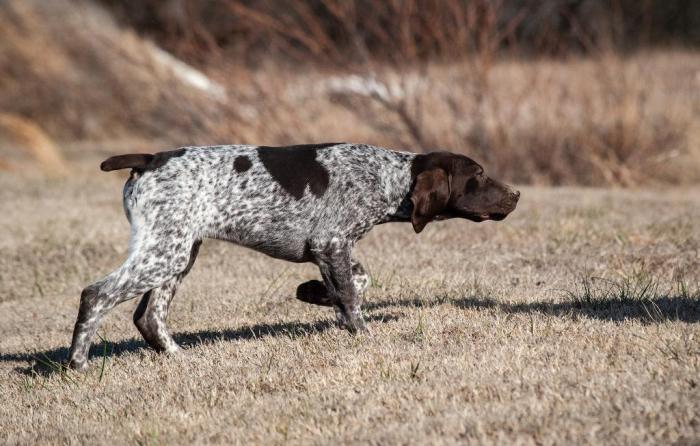
German Shorthaired Pointers are generally a healthy breed, but like all dogs, they may be prone to certain health concerns. It is important for potential owners to be aware of these issues in order to provide the best care for their furry friends.
Common Health Concerns
- Hip Dysplasia: This is a common issue in many large dog breeds, including German Shorthaired Pointers. Regular exercise and maintaining a healthy weight can help reduce the risk of hip dysplasia.
- Progressive Retinal Atrophy (PRA): This is a genetic eye disorder that can lead to vision loss. Regular eye check-ups with a veterinary ophthalmologist can help detect PRA early on.
- Bloat: Also known as gastric torsion, bloat is a serious condition that can be life-threatening if not treated promptly. Feeding multiple smaller meals throughout the day and avoiding exercise after meals can help prevent bloat.
Preventive Measures and Health Checks
- Regular Vet Check-ups: It is important to schedule regular check-ups with a veterinarian to monitor your German Shorthaired Pointer’s overall health and catch any potential issues early on.
- Vaccinations: Keeping up-to-date with vaccinations is crucial to prevent diseases and maintain your puppy’s health.
- Dental Care: Brushing your puppy’s teeth regularly and providing dental treats can help prevent dental issues later on.
Maintaining Overall Well-being
- Proper Nutrition: Providing a balanced diet tailored to your puppy’s age and activity level is essential for their overall well-being.
- Regular Exercise: German Shorthaired Pointers are an active breed that requires daily exercise to stay healthy and happy. Engage in activities like running, hiking, or playing fetch to keep your puppy physically and mentally stimulated.
- Mental Stimulation: In addition to physical exercise, mental stimulation is important for this intelligent breed. Puzzle toys, training sessions, and interactive games can help keep your puppy’s mind sharp.
Training and Socialization

Training and socialization play a crucial role in shaping the behavior and temperament of German Shorthaired Pointer puppies. Early training and socialization are essential to ensure they grow up to be well-behaved, confident, and friendly companions.
Effective Training Techniques
- Start training early: Begin training your German Shorthaired Pointer puppy as soon as you bring them home. Consistency and patience are key.
- Positive reinforcement: Use rewards such as treats, praise, and toys to encourage good behavior. This breed responds well to positive reinforcement.
- Obedience training: Teach basic commands like sit, stay, come, and heel. GSPs are intelligent and eager to please, making them quick learners.
- Exercise: Ensure your puppy gets enough physical and mental exercise to prevent boredom and destructive behavior.
Socializing with Other Pets and People
- Exposure to different environments: Take your puppy to various places, introduce them to different sounds, sights, and people to build their confidence.
- Meet other dogs: Arrange playdates with well-socialized dogs to help your GSP puppy learn appropriate social cues and manners.
- Positive interactions: Encourage positive interactions with people of all ages to prevent fear or aggression towards strangers.
- Training classes: Enroll your puppy in puppy training classes to help them socialize with other puppies in a controlled environment.
Nutritional Needs and Diet Recommendations: German Shorthaired Pointer Puppies For Sale
German Shorthaired Pointer puppies have specific nutritional needs to support their growth and development. It is essential to provide them with a balanced diet to ensure they thrive and stay healthy throughout their lives.
Appropriate Diet for German Shorthaired Pointer Puppies
German Shorthaired Pointer puppies require a diet that is rich in protein to support their active lifestyle. Look for high-quality puppy food that lists meat as the first ingredient, as this will provide the necessary protein for muscle development.
Feeding Schedule and Portion Sizes
It is recommended to feed your German Shorthaired Pointer puppy three to four times a day to maintain their energy levels and prevent overeating. Portion sizes should be appropriate for their age and size, so consult with your veterinarian to determine the right amount.
High-Quality Food Brands and Treats
When choosing a food brand for your German Shorthaired Pointer puppy, opt for reputable brands that use natural ingredients and have a good balance of nutrients. Some popular options include Royal Canin, Hill’s Science Diet, and Purina Pro Plan. Additionally, make sure to offer treats in moderation and choose ones that are specifically designed for puppies to avoid any digestive issues.
Exercise and Activity Levels
German Shorthaired Pointer puppies are known for their high energy levels and need plenty of exercise to stay healthy and happy. It is important to provide them with both physical activities and mental stimulation to prevent boredom and behavioral issues.
Suitable Physical Activities and Mental Stimulation
German Shorthaired Pointer puppies excel in activities that involve running, jumping, and playing. Some suitable physical activities include:
- Long walks or hikes
- Running or jogging alongside a bicycle
- Fetch or playing with interactive toys
To provide mental stimulation, consider activities such as:
- Training sessions for obedience and agility
- Puzzle toys or treat-dispensing toys
- Scent work or hide and seek games
Tips for Ensuring Adequate Exercise
To ensure that your German Shorthaired Pointer puppy gets enough exercise, consider the following tips:
- Establish a consistent exercise routine to help them burn off excess energy.
- Monitor their weight and adjust their exercise levels accordingly to prevent obesity.
- Incorporate both physical and mental activities to keep them engaged and stimulated.
- Provide a variety of activities to prevent boredom and encourage bonding with your puppy.
Developmental Stages and Milestones
German Shorthaired Pointer puppies go through various developmental stages as they grow, each with its own set of milestones. It is essential for pet owners to understand these stages to provide appropriate care and support to their furry companions.
Newborn Stage (0-2 weeks)
During the newborn stage, German Shorthaired Pointer puppies are completely dependent on their mother for nourishment and warmth. Their eyes and ears are closed, and they spend most of their time sleeping and nursing.
Transitional Stage (2-4 weeks)
As the puppies reach the transitional stage, their eyes start to open, and they become more aware of their surroundings. They begin to crawl and explore their environment, developing early social skills with their littermates.
Socialization Stage (4-12 weeks)
The socialization stage is crucial for German Shorthaired Pointer puppies as they learn to interact with humans and other animals. They start to play more actively, learn basic commands, and begin the process of house training.
Juvenile Stage (3-6 months), German shorthaired pointer puppies for sale
During the juvenile stage, puppies experience rapid growth and development. They may become more independent, test boundaries, and exhibit signs of adolescence. Basic obedience training becomes more important during this phase.
Adolescent Stage (6-18 months)
In the adolescent stage, German Shorthaired Pointer puppies continue to mature physically and mentally. They may display more stubborn behavior and may challenge authority. Consistent training and socialization are key during this period.
Adulthood Stage (18 months and older)
Once German Shorthaired Pointer puppies reach adulthood, they are considered fully mature. They have developed their full physical and behavioral traits and are ready to take on the world as active, loyal companions.It is important for pet owners to provide a safe and stimulating environment for their German Shorthaired Pointer puppies throughout these developmental stages.
Proper nutrition, regular veterinary check-ups, exercise, and training are essential to ensure a happy and healthy adult dog.
Breeding Regulations and Ethical Considerations
Responsible breeding practices are crucial when it comes to German Shorthaired Pointer puppies for sale. By following ethical guidelines and standards, breeders can ensure the well-being and health of the puppies they produce, as well as contribute to the overall preservation of the breed.
Importance of Responsible Breeding Practices
- Responsible breeding helps maintain the integrity of the breed by adhering to established standards and guidelines.
- It reduces the risk of hereditary health issues and genetic disorders in puppies.
- Proper breeding practices promote the physical and behavioral traits that define the German Shorthaired Pointer breed.
Ethical Considerations in Breeding
- Adhering to breed standards set by kennel clubs ensures that puppies meet the required characteristics of the German Shorthaired Pointer breed.
- Consideration of genetic diversity helps prevent inbreeding and maintains a healthy gene pool within the breed.
- Responsible breeders prioritize the well-being of the puppies over profit, ensuring they are placed in suitable homes with caring owners.
Promoting the Well-being of the Breed
- Educating potential owners about the breed’s specific needs and characteristics helps ensure they are prepared to care for a German Shorthaired Pointer.
- Regular health screenings and genetic testing can help identify potential health issues in breeding dogs, reducing the risk of passing on hereditary conditions to the puppies.
- Collaborating with other reputable breeders and breed clubs can provide valuable support and resources to improve breeding practices and contribute to the breed’s overall health and well-being.
Final Conclusion
As you embark on the journey of welcoming a German Shorthaired Pointer puppy into your life, may the insights shared here serve as a valuable resource in ensuring a harmonious bond with your new furry friend.

